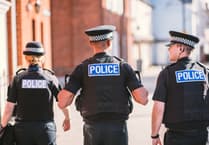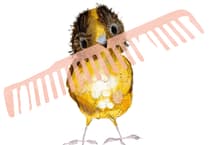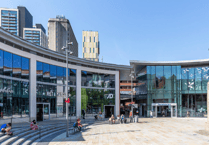THEY were a superstitious lot years ago in ‘Old Surrey’ with lots of sayings and customs – many of which have died out.
The sayings and customs all come under the topic of folklore. But academic folklorists have mostly ignored Surrey as a middle-class county without folklore of its own. Until now that is, with the publication of a super book, Folklore of Surrey, written by Matthew Alexander, an eminent historian who, for many years, was the curator of Guildford Museum.
He has been collecting examples of folklore throughout Surrey for over 40 years and his book gives hundreds of examples grouped in sections that include churches, tunnels and treasure, ghosts, monsters, the Paraisees (and old Surrey name for Fairies) and the Devil, witches, folk medicine, matters of life and death, sayings and calendar customs.
The Woking area gets plenty of mentions. For example, the belief there is a crock of gold at the end of the rainbow led to place names being associated with it – and Goldsworth is included in the list.
In respect of holy wells and water with supposed healing properties, a stream by the south edge of Hook Heath was so renowned that George III sent for some of its water.
Matthew has discovered a description of the custom of rough music from the Woking area dating back to 1870, written by an AC Bickley, who contributed articles to the Antiquity magazine. He said: “When a person has insulted the parish, by say, beating his wife, or has committed some crime for which the law cannot punish him, the commoners and others collected old pans and pails, and anything else that will make a hideous row and visit the offender some evening unexpectedly.

“They surround the house, banging their implements and yelling. The performance winds up by them calling the culprit names and smashing his windows. After the rough music, the offender was ostracised by the rest of the community.”
Regarding old sayings, and of places of a low reputation, it was once said: “Two pairs of anything would make a Chobham orchard,” implying a meagre status. Also, it was said that the village’s inhabitants had webbed feet.
Evidently, around 1900, a Ripley blacksmith laid down a horse on the green to shoe it. The horse died of heart failure, unnoticed by the farrier, who, having finished the job, flapped his apron to make it get up. This episode was seized upon as proof of foolishness. For some time afterwards, it was a standing joke with Old Woking people to make the motion of shaking a smith’s apron on meeting a Ripley man. And Ripley was described as the “place they shoe dead horses”.
Another name given to the belief of monsters, bogies, and such like was bullbeggar. And Bullbeggar’s Lane in Horsell was said to be haunted by one in the 1880s. It was described by one who had seen it as “black and about the size of a calf or dog”.
There were several old customs associated with funerals, with many believing that by carrying a coffin to the church along a particular path, would establish a permanent right of way. In Horsell in 1900, a carpenter violently opposed the passage of a funeral procession across what he considered his land, and forced them to go another way.
The book is a fantastic read, for both the fascinating stories that are told and being an important addition to our knowledge of Surrey’s history. It is the first book of its kind for the county.
Matthew says he was very fortunate several years ago to have been able to interview a number of local people, born before the First World War, who spoke firsthand of the folklore they knew.
Many other examples in the book were gleaned by Matthew from written sources. Each listing and example given is referenced – very useful for anyone who may like to explore the topic further.
Folklore of Surrey by Matthew Alexander costs £12.99. Copies can be bought from the Surrey History Centre in Woking and Guildford Museum. The book has been published by Surrey Archaeological Society and all proceeds from sales will go to the society.
If you have some memories or old pictures relating to the Woking area, call David Rose on 01483 838960, or drop a line to the News & Mail.
David Rose is a local historian and writer who specialises in what he calls “the history within living memory” of people, places and events in the west Surrey area covering towns such as Woking and Guildford. He collects old photos and memorabilia relating to the area and the subject, and regularly gives illustrated local history talks to groups and societies. For enquiries and bookings please phone or email him at: [email protected]




